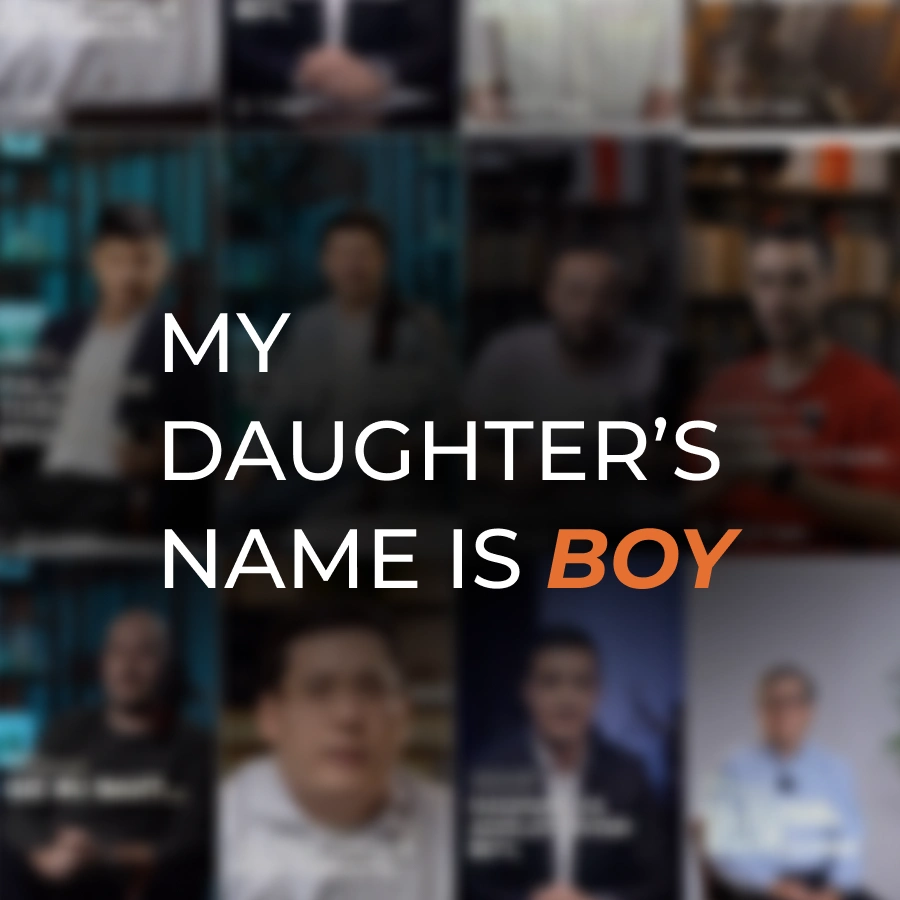Problem
Problem In Uzbekistan, the cult of sons remains deeply rooted. The birth of a daughter is often seen as a disappointment. This bias fuels selective abortions, domestic violence against pregnant women expecting girls, and the stigma of being “unwanted” before birth. Even naming traditions prove it: girls are called O‘g‘ilxon, O‘giloy, O‘gilbulsin (“let it be a boy”) - names that literally mean “boy.” Task To confront entrenched patriarchal stereotypes and shift the narrative. We aimed to show that a girl is not a mistake or burden, but a source of joy and value from the very first day of life. Transform taboo into dialogue, and dialogue into institutional change. To achieve this, it was crucial to bring men’s voices - almost absent in this dialogue - to the forefront, creating a safe and legitimate format for fathers to speak publicly.
Solution
Solution We launched a social project - “Letters to Daughters” - where fathers, celebrities, athletes, bloggers, cultural leaders and ordinary men wrote open messages to their daughters. These letters, emotional yet simple, became a cultural breakthrough: they provided language, legitimacy, and courage for men to express love. These personal messages broke the silence and asserted a new truth: a daughter is not a disappointment but a blessing. The campaign used an organic, low-budget approach: text-first content, shared natively on social media and media outlets, amplified entirely through voluntary participation. Every post became a cultural act - turning social media from “entertainment only” into a platform for values.
Result
Result • Only in two weeks 5M+ organic views across platforms. • More than 350 media mentions • Additionally more than 30 public letters from users sparked a nationwide debate about the value of daughters. • For the first time, men collectively broke silence and stigma, reshaping the narrative. • The project set an example: love and recognition should start not “someday,” but from a girl’s very first day. • The initiative evolved from cultural activation into systemic change: • Opening of the Mother’s House — a shelter for pregnant women in crisis. • Adoption of a landmark child protection law • Launch of a hotline for women at risk. • Memorandums with UNFPA and the Religious Committee, embedding the message into institutional and cultural practice.Roadmap (What’s next) The project is no longer just a campaign — it is a national program in the making. • Annual integration on TV. • School curricula and community centers introducing fathers’ role models. • Expansion of support services for pregnant women and young mothers. • Annual of “Letters to Daughters” as a cultural tradition, bridging generations. Impact From silence to public pride. From a taboo to a cultural movement. From a campaign to a policy shift.

